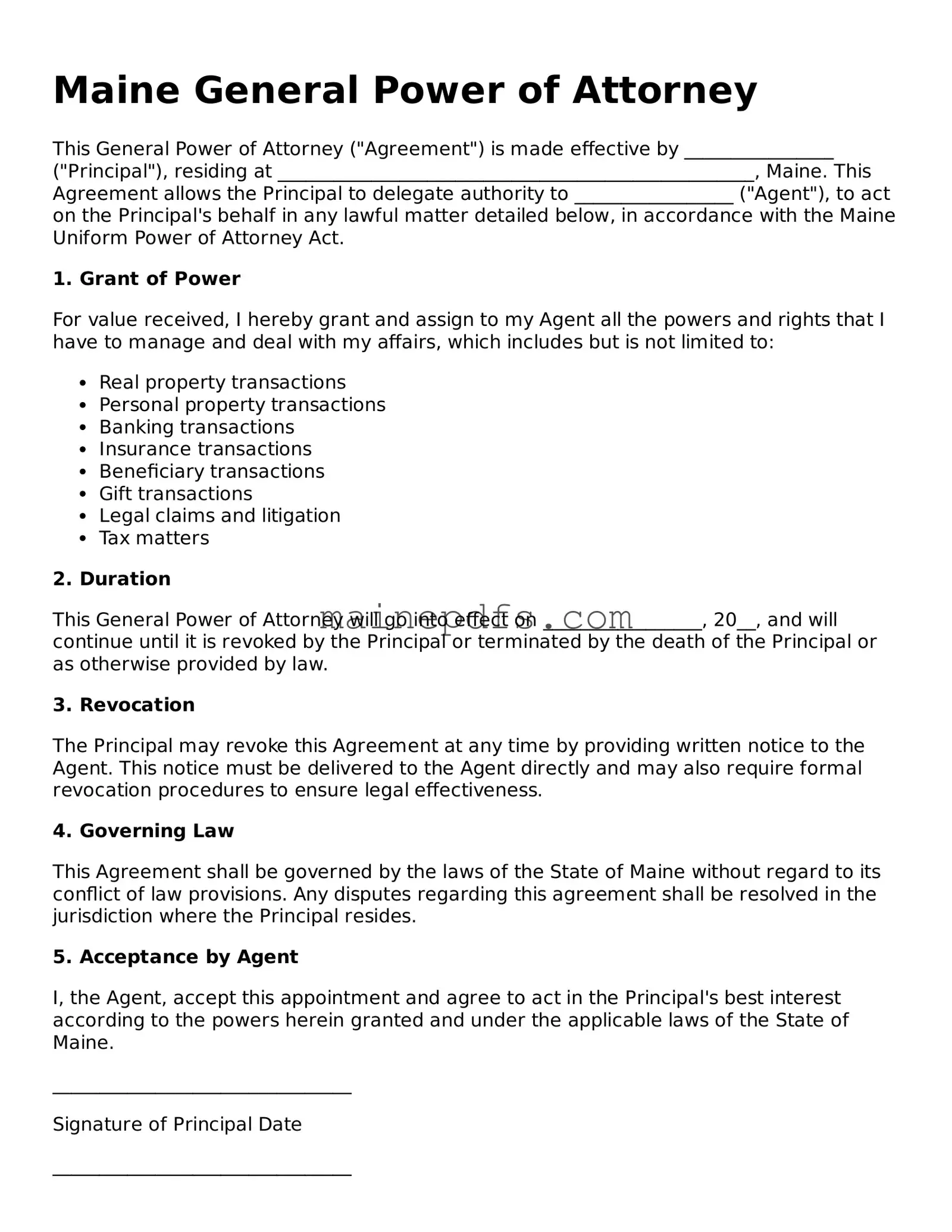Attorney-Approved Maine General Power of Attorney Template
The Maine General Power of Attorney form enables an individual to grant broad financial powers to another person, known as an agent or attorney-in-fact. This legal document allows the agent to manage financial affairs on the principal’s behalf, including but not limited to, banking transactions, property management, and investment decisions. For those seeking to ensure their financial matters are handled with care and diligence, consider filling out the form by clicking the button below.
Make My Document Online

Attorney-Approved Maine General Power of Attorney Template
Make My Document Online

Make My Document Online
or
Click for PDF Form
A few steps left to finish this form
Finish General Power of Attorney online — no paper, no scanner needed.